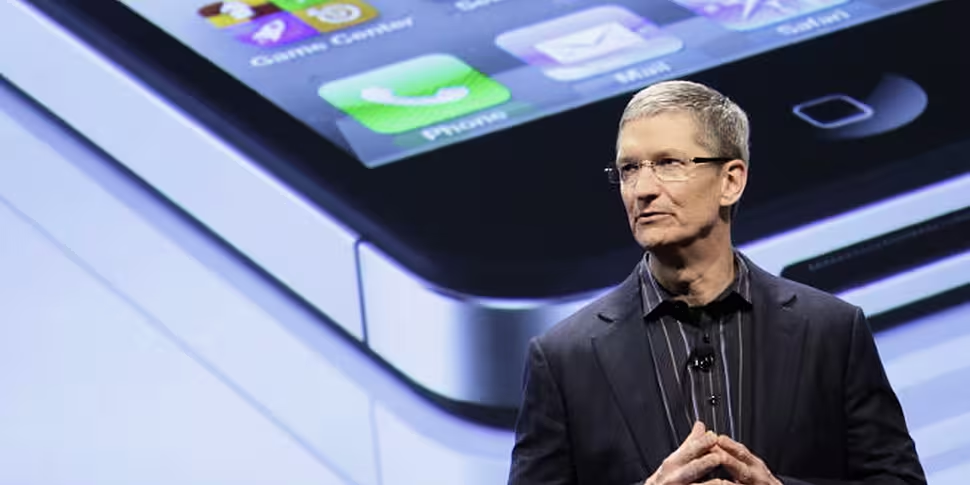It’s that time of year again when you look at all the tech you bought in the last 12 months, realise it’s now all terrible and you need to update it all again in the next 12 months.
So what’s coming in 2017?
Smartphones turn 10
Next month marks 10 years since Steve Jobs unveiled the iPhone and the while it wasn’t the first touchscreen smartphone, it was the one which took the smartphones mainstream.
While the pace of smartphone innovation has naturally tapered off in recent years, we are likely to see the biggest update to the iPhone for four years, with the 10th anniversary edition expected to feature a completely new look, potentially including a curved display.

Samsung is also under pressure to deliver something big with its new Galaxy S8 smartphone, expected earlier in the year — especially given its Galaxy Note 7 disaster earlier this year.
However the company will need to be wary of pushing things too far and risking a repeat disaster.
Elsewhere expect Chinese companies you know little about to continue to emerge as credible alternatives to the big name manufacturers, with companies like Huawei, ZTE, Xiaomi, Oppo and OnePlus all offering top end specs at lower prices.
Drone deliveries will become a reality
On December 7, Amazon carried out its first delivery to a customer using its Prime Air Drone. At the moment the closed trial is very limited but it will expand quickly next year and Amazon won’t be the only company looking to take this technology mainstream in 2017. Regulations are still a sticking point, but commercial pressure should speed up advances in this area.
Tablets and PCs
The PC market generally is unlikely to see any significant return to growth in 2017 but what we will see is the continued emergence of the new class of convertible or 2-in–1 devices. Microsoft’s Surface, Apple’s iPad Pro and dozens of other devices which offer the best of a tablet and laptop in one device will continue to be the big trend in this market.
At the budget end of the market expect to see Google continue to push its portable, lightweight and cheap Chrome OS with Chromebooks making big inroads into the education sector. Google could potentially add more offline functionality, making the operating system a real alternative to Windows and macOS.
VR

Virtual reality headsets made their long awaited comeback in 2016 with the HTC Vive, Oculus Rift and PlayStation VR launching alongside mobile versions from Google and Samsung.
In 2017 we are likely to see many, many more VR headsets — Microsoft says 2017 will see the launch of a number of new headsets running a VR version of windows 10. We could also see second generation models from Oculus, HTC and Sony. Improved screen resolution and making the headsets wireless are among the most likely — and demanded — upgrades.
As with all such emerging tech, we can also expect to see prices begin to drop as competition increases.
The driverless future
For a couple of years now, companies like Google and Tesla have been telling us that in the future no one will drive. In 2016 they were joined by Apple, Uber and pretty much every other major tech and automotive company.
However just how this revolution will happen is unclear. Apple has retreated from its initial bullish plans to build its own car and Google has spun off its self-drive car efforts into a separate company which no longer plans to build completely autonomous cars — instead partnering with Chrysler to build a fleet of taxis.
In 2017 expect to see a clearer roadmap for how the companies pushing this technology will get the cars into the hands of consumers. Tests are happening already on the streets of many cities around the world — mainly in the US and UK — but the big holdup isn’t the technology. Regulation is not keeping pace and while some strides will be made on this in 2017, don’t expect to burn your driving licence just quite yet.
Who’s listening?
With Amazon Echo and Google Home in 2016 we have seen the launch of voice-activated computing and in 2017 that is only going to get bigger and bigger. As people become more accustomed to talking to a machine, we will see the rise of personal assistant like Siri, Cortana and Google Assistant in 2017.
v=bikRuaJAv5g&ab_channel=Windows">
Microsoft has already teased the launch of its Echo competitor next year and rumours continue to swirl that Apple will launch a similar product. Just like the smartphone market, companies will be eager to tie you into their ecosystem so they can reap the benefits of all that lovely data you are feeding them.
Cyber gets (even more) serious
With the record-breaking, billion-account Yahoo hack fresh in the mind, you might think 2016 was a bad year for cyber security breaches. And you would be right, but the problem is that 2017 is going to be worse.
As dramatic as that sounds it just stands to reason that the more things we connect to the internet (cars, fridges, TVs, baby monitors, door locks) the most things there are for hackers to compromise.

Add to this the increasing amounts of data we are entrusting to online services and we just have to accept that things are going to get worse before they get better. You can of course take steps to protect yourself in 2017:
- Use two-factor authentication wherever possible
- Don’t click on links in emails that look suspicious
- Educate yourself and your family about the dangers of oversharing online
- Don’t use the same password for all your online accounts
- Use encrypted messaging apps like iMessage, WhatsApp or Signal









